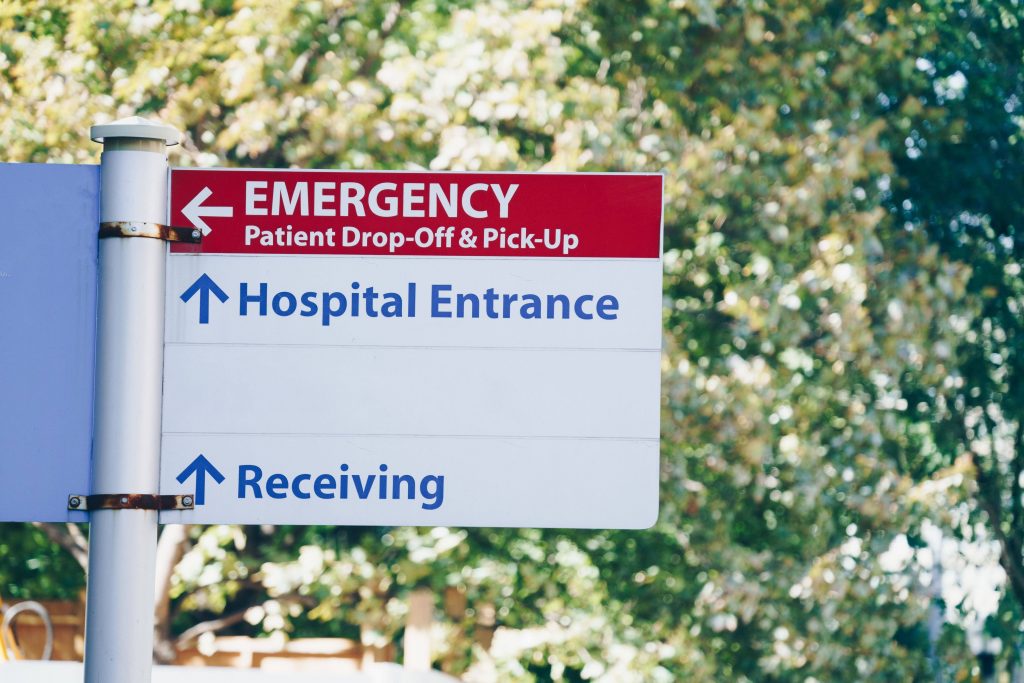Consultants working at Brighton’s Royal Sussex County Hospital (RSCH) – the major trauma tertiary centre for the South East coast – have written to their chief executive warning that the site is currently “extremely unsafe” for patients, and have suggested that all elective activity should temporarily be diverted elsewhere.
In the letter, sent last week to University Hospitals Sussex (UHS) Foundation Trust chief executive Dame Marianne Griffiths, and seen by the BBC and online news site HSJ, surgeons and anaesthetists working at RSCH claimed that operating theatre staff levels were “dangerously low”, and referred to a “downward spiral of losing many experienced staff” because of low morale and pandemic-related burnout. The consultants also highlighted the “dysfunctional, uncaring and incompetent” record of the hospital’s management.
The move came as acute hospital trusts across England continue to experience very high levels of bed occupancy, and UHS itself highlighted the associated safety concerns by publicising the World Health Organisation’s ‘Patient Safety Day’ on its Twitter feed just days before Dame Griffiths received the consultants’ letter. Earlier this summer more than a third of general acute trusts were operating at levels exceeding NHS England guidance – set at a maximum of 92 per cent – with eight trusts nearing 100 per cent in May.
That same month UHS refused to reveal the full findings of an independent review of its neurosurgery department, conducted by the Royal College of Surgeons in 2019, and opted instead to release a heavily redacted report which excluded the number of incidents resulting in either ‘moderate’ or ‘severe’ harm. UHS medical director Dr Rob Haigh told the BBC at the time that the full report could not be released simply because it “contains confidential information”.
Looking back over the past decade, it certainly seems the controversy surrounding last week’s consultants’ letter stems from problems that have been brewing for a decade.
In March 2013, for example, nurses working in A&E at RSCH told the BBC they felt unable to deliver good patient care because of overcrowding and understaffing, and a month later HSJ found that BSUH – the body which then managed both RSCH and the Princess Royal Hospital in Haywards Heath – had the highest number of patients in England waiting more than 12 hours to be admitted to A&E.
In June that year the CQC told RSCH to improve because of concerns over lack of washing facilities and overcrowding in its A&E department, and it had to repeat the message 18 months later when the commission again found that the hospital’s A&E required improvement, this time along with RSCH’s maternity services.
The problems continued, however, and in October 2015 inspectors from the CQC were obliged to formally rate the safety and management of RSCH’s A&E unit as ‘inadequate’, and they raised particular safety concerns. And the following year the commission told BSUH to make significant improvements to RSCH – citing patients being put at unnecessary risk because they were not being dealt with properly – and subsequently put the trust into special measures after inspectors still found it to be unsafe and poorly led.
But in January 2019 it looked like the tide was turning, when BSUH was given a clean bill of health by the CQC, and rated ‘good’ overall and ‘outstanding’ for caring, following an inspection in September 2018, the same year that the trust emerged from financial special measures.
And BSUH’s subsequent merger, earlier this year, with the Western Sussex Hospitals NHS Foundation Trust – the first non-specialist acute trust in England to be rated ‘outstanding’ in all the key inspection areas assessed by the CQC – to form UHS was expected to result in further improvements to the performance of RSCH, alongside those many hope will also stem from the near-£500m, helipad-equipped revamp of the hospital’s Victorian-era infrastructure.
That revamp is scheduled to see the completion of a new ‘urgent treatment centre’ next spring, augmenting RSCH’s A&E capability, but it remains to be seen whether any of these admittedly positive developments materially impact on the issues raised so forcefully in the hospital consultants’ letter to Dame Griffiths last week.
Dear Reader,
If you like our content please support our campaigning journalism to protect health care for all.
Our goal is to inform people, hold our politicians to account and help to build change through evidence based ideas.
Everyone should have access to comprehensive healthcare, but our NHS needs support. You can help us to continue to counter bad policy, battle neglect of the NHS and correct dangerous mis-infomation.
Supporters of the NHS are crucial in sustaining our health service and with your help we will be able to engage more people in securing its future.
Please donate to help support our campaigning NHS research and journalism.


